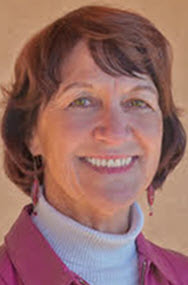
We are as polarized as we have ever been—in the nation—and in our community. The aftermath of the murder of George Floyd has increased the anger and grief over the state of justice in this country. To talk across the divides of positions or ideas seems fraught with danger. And danger—for some—seems to be ever present. Any communication about what we are each feeling seems to be even more dangerous.
How and when can we come together in this terrible time? It is a crisis totally unlike any we have ever seen and therefore most of us have no tools to deal with it. One of the huge fears is the unknown—for those who believe that the virus is deeply dangerous and unpredictable and real—the unknown future can be paralyzing. For those of us who are looking at the legacy of racism in our culture the sorrow and the paralyzing fear seem monumental.
Perhaps it is important to ask—what have we to gain in this time of COVID-19 combined with racial grief? If we have the courage and skills to think that there may be something positive that can happen in this time—perhaps we can act on that belief in small ways. Can we breathe deeply and commit to learning from someone who feels differently than we do? Can we look at the many ways we might reach out of our caves to help others?
Talking to someone with different beliefs and experiences means that we need to eliminate the accusatory. Open dialogue begins with charitable listening. We must first put aside our need to counter what we are hearing, to immediately jump to the defensive. We can only open the door to some understanding if we admit our own fears—prejudices—shadows that haunt us. As we try to talk—we need to say, “I feel—think—fear—hope” etc. rather than using the accusatory “You are—-.” That is hard for us all—because if we talk with someone who is out of “ our group” we may fear exposure to information we have not heard, or we may fear that someone will reject us totally, or that we may somehow be changed.
In a time of fear and uncertainty—often the most protective thing we do—is cling to our beliefs—because they are familiar. We believe we have chosen them—and now there seem to be few actions and choices under our control. We become more rigid and talking across differences is a bridge too far. We don’t want to learn something different.
Those rock belief ideas—about religion, science, or medicine, or news, or politics, or “others” determine a great deal of our thoughts. Changing those beliefs takes rare courage and patience if we want to understand the divide that controls us.
The Taos Interfaith Gathering, led by Pastor Cheri Lyon and Jim Gilroy, is a gathering of religious and non-profit leaders from many different faith groups and caring agencies in the Taos area. They realized they must first develop trust and understanding to be able to make a difference in our communities. The group rotates their gathering spaces between different faith facilities and begins each meeting by participating in the faith traditions of the host entity. They have worshiped together at churches of many different denominations, at the Taos Jewish Center, at the Neem Karoli Baba Ashram and at the Masjid Khadijah Mosque as well as other locations. At the end of the “worship” the group talks about the experience. These gatherings have developed friendships, understandings and trust. The group has found a way to be respectful and accepting while still maintaining their individual faith.
If we look around—we can see examples of positive caring and love that reflect our better selves—as people donate to immigrant families, as TENT provides services to those who are older and in need, as Meals on Wheels and Food Pantries accept donations and distribute to the needy with no questions asked, as churches go on Zoom to share their faith and encourage caring outreach. Each act is one small pebble of goodness in the vast ocean of turmoil.
We have a choice, we can begin a respectful dialogue with those different than us; we can find the courage to admit that “I am fearful, confused, depressed, and pessimistic about my life. Help me to understand how you feel?” We can strive to achieve respectful disagreement. The alternative is to continue to live in a town and nation that demonizes the other.
Taos Behavioral Health has the largest behavioral health staff in Northern News Mexico. We can be reached at 575-758-4297 or www.taosbehavioralhealth.org
Dr. Mary McPhail Gray is the Board Chair of TBH and can be reached at 575-779-3126 or mcphailconsulting@gmai.com
Rev. Mike Olsen is a member of the TBH Board and a retired Episcopal priest.

